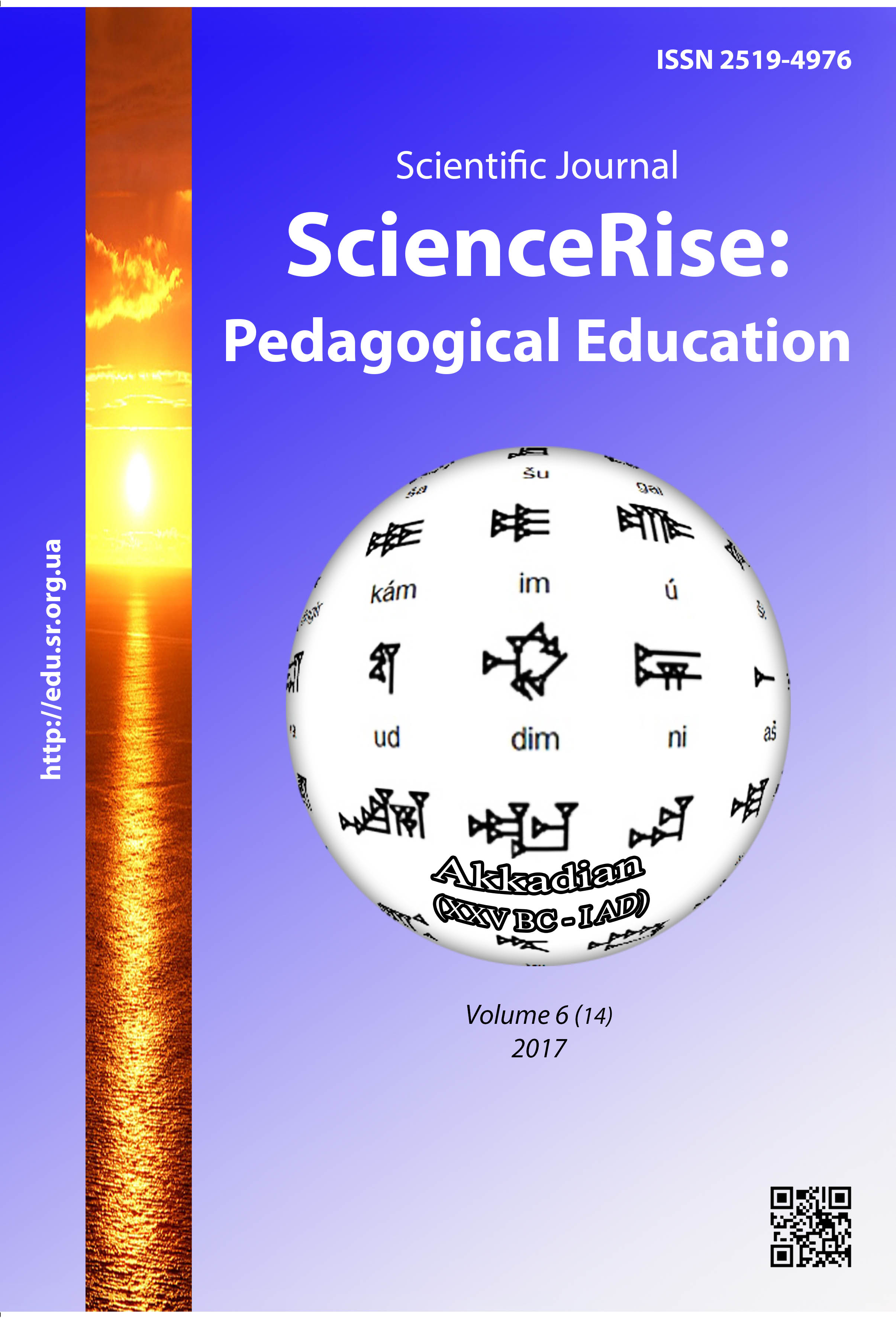The metacognitive training of future professionals in higher education: the experience of implementation and peculiarities
DOI:
https://doi.org/10.15587/2519-4984.2017.105450Keywords:
future professional, metacognitions, metacognitive training, reflection, higher educational institution, verbalizationAbstract
In the research was realized the analysis of metagognitive training programs, realized in the process of professional training of future specialists in higher educational institutions. There were determined scientific-methodological grounds of the successful formation of metacognitions as complicated, multi-level and system-organized psychical formations that have the procedural and autonomously developed form, are directed on the organization, regulation and coordination of primary cognitive processes and provide the general regulation of the training and professional activity of future specialists. In the paper is noted that effective metacognitive training programs for future specialists in HEIs:
– must be supported by the motivation, students’ interest; must include the theoretical part that provides the mastering of metacognitive knowledge by students and the practical one that provides metacognitive skills formation;
– must provide the reflection and students’ reflexive skills development;
– be realized with the support on regulative processes;
– Must take into account unevenness and heterogeneity of the mastering, fixation and generalization of different metacognitive skills;
– must be grounded on the specificity of an individual and collective activity;
– must provide the use of written supports, schemes that give a possibility to visualize the process of a task solution
References
- Flavell, J. H. (1979). Metacognition and cognitive monitoring: A new area of cognitive-developmental inquiry. American Psychologist, 34 (10), 906–911. doi: 10.1037/0003-066x.34.10.906
- Hacker, J. (1997). Teaching new thinking. Journal of developmental Psychol, 5, 28–36.
- Kholodnaya, M. A. (2002). Psikholohiya intellekta. Paradoksі issledovaniya. Saint Petersburg: Pyter, 272.
- Karpov, A. V., Skytyaeva, Y. M. (2005). Psikholohiya metakohnitivnikh protsessov lichnosti. Moscow: Institut psikholohii RAN, 352.
- Galperyn, P. Ya. (2002). Lektsii po psykholohii. Moscow: Knyzhniy dom «Universitet»: Vysshaya shkola, 400.
- Perkins, D. N., Salomon, G. (1989). Are Cognitive Skills Context-Bound? Educational Researcher, 18 (1), 16–25. doi: 10.2307/1176006
- Seamster, D., Redding, V., Kaempf, D. (1997). Cognitive Task Analysis. Dayton: Wright State University, 386.
- Schraw, G., Moshman, D. (1995). Metacognitive theories. Educational Psychology Review, 7 (4), 351–371. doi: 10.1007/bf02212307
- Oxford, R.; Parry, T. S., Stansfield, C. W. (Eds.) (1990). Styles, strategies, and aptitude: Connections for language learning. Language aptitude reconsidered. Englewood Cliffs: Prentice Hall Regents, 302.
- Wolfs, J. L. (2001). Methodes de travail et strategies d'apprentissage: Du secondaire a l'utiiversite. Bruxelles: De Boeck & Larcier, 332.
Downloads
Published
How to Cite
Issue
Section
License
Copyright (c) 2017 Yuliia Adonieva

This work is licensed under a Creative Commons Attribution 4.0 International License.
Our journal abides by the Creative Commons CC BY copyright rights and permissions for open access journals.
Authors, who are published in this journal, agree to the following conditions:
1. The authors reserve the right to authorship of the work and pass the first publication right of this work to the journal under the terms of a Creative Commons CC BY, which allows others to freely distribute the published research with the obligatory reference to the authors of the original work and the first publication of the work in this journal.
2. The authors have the right to conclude separate supplement agreements that relate to non-exclusive work distribution in the form in which it has been published by the journal (for example, to upload the work to the online storage of the journal or publish it as part of a monograph), provided that the reference to the first publication of the work in this journal is included.







